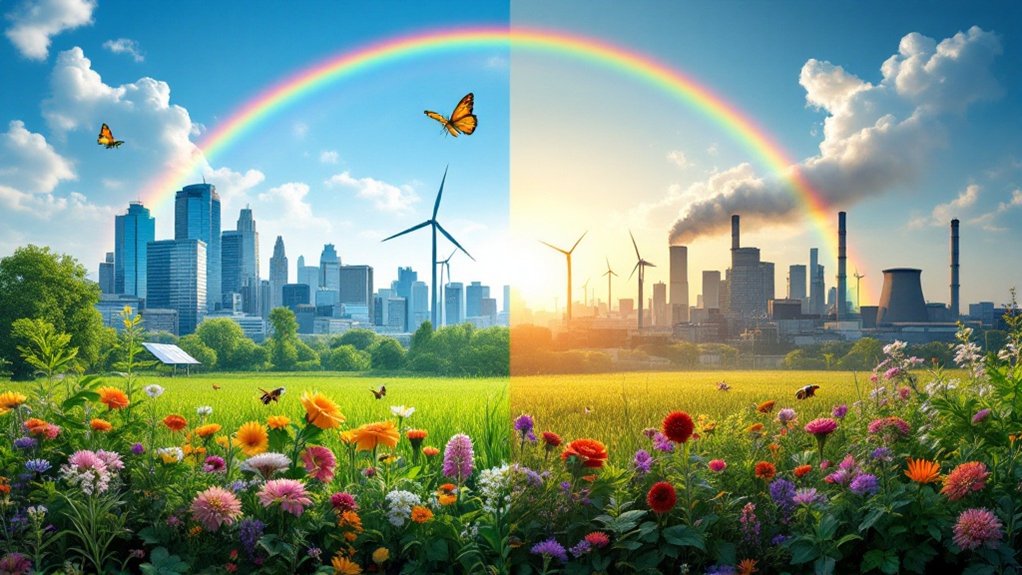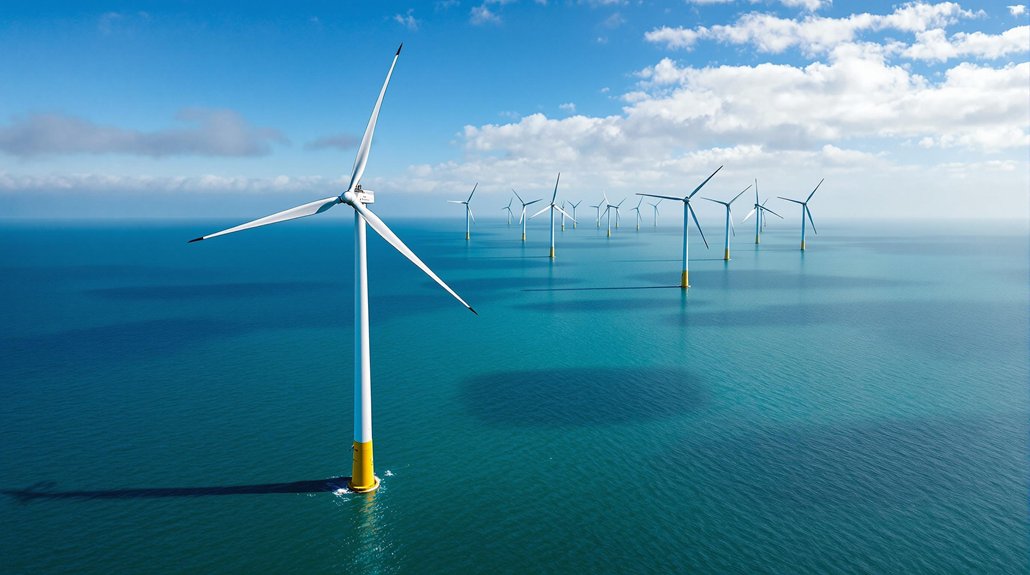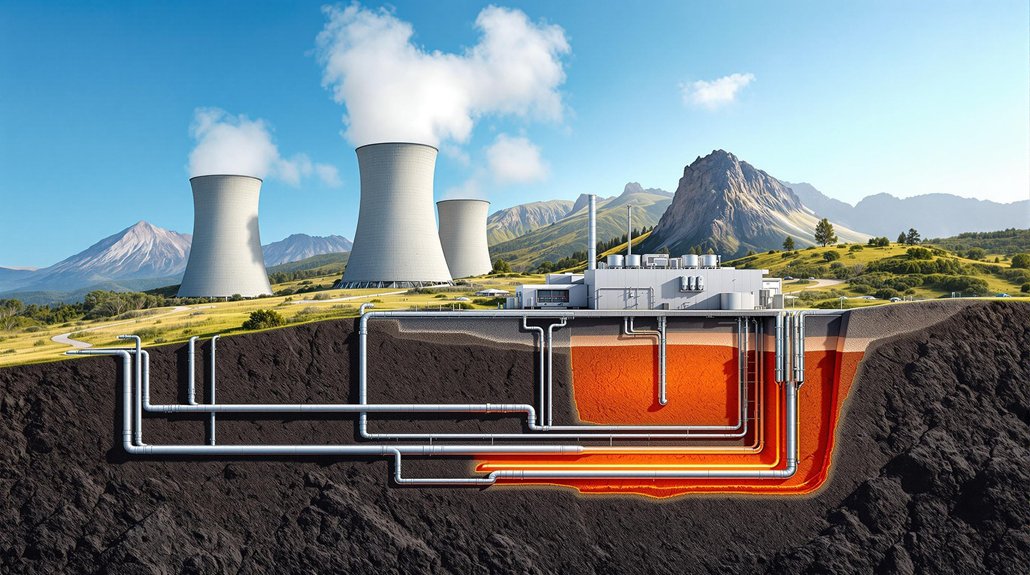Reducing CO2 emissions creates a domino effect of benefits across society. The environment gets healthier oceans and fewer natural disasters, while the economy gains from clean energy jobs and reduced healthcare costs. Agriculture thrives with better crop yields and pollinator health. Energy security improves through grid reliability and stable prices. Nations even play nicer together when tackling emissions – imagine that. The cascade of positive impacts runs deeper than most realize.

Slashing CO2 emissions isn’t just about saving polar bears anymore – it’s about saving ourselves. The benefits of reducing carbon dioxide emissions reach far beyond the Arctic ice caps, touching every aspect of human life. From breathing cleaner air to spending less on medical bills, the perks of cutting emissions are pretty hard to ignore. And let’s be honest, who doesn’t want better crop yields and fewer natural disasters?
The environmental wins are obvious. Less CO2 means slower climate change, healthier oceans, and ecosystems that actually function the way they’re supposed to. It’s funny how nature works better when we stop messing with it. Cities become more livable when they’re not choking on smog, and extreme weather events become less frequent. Fine particulate matter in the air decreases significantly when emissions are reduced, directly preventing premature deaths. Imagine that – fewer headlines about record-breaking heatwaves and floods. The world’s carbon sinks are already absorbing over half of our CO2 emissions, and reducing emissions would help them work even better.
Nature thrives when we step back – cleaner air, healthier oceans, and fewer extreme weather events prove we’re on the right track.
The economic benefits are equally impressive, though less visible at first glance. Clean energy jobs are booming, and healthcare costs drop when people aren’t breathing in pollution. Innovation in green tech is creating entirely new industries. The math is simple: invest in emission reduction now, or pay way more later dealing with climate disasters. Currently, fossil fuel electricity contributes to about 63% of global power generation, showing the massive potential for transformation.
Speaking of disasters, farmers have a lot to gain from reduced emissions. Better crop yields, less soil erosion, and healthier pollinator populations mean more food security for everyone. Plus, when farming systems become more resilient, food prices tend to stabilize. It’s amazing how everything connects.
Energy security gets a boost too. Less dependence on fossil fuels means more stable energy prices and better grid reliability. Cities become more livable with reduced urban heat islands and better air quality. Green spaces actually stay green instead of turning into concrete jungles.
Perhaps most importantly, cutting emissions forces global cooperation. Nations have to work together, share technology, and actually talk to each other about something other than conflict. It’s like a global project that everyone has a stake in – because they do. When it comes to emissions reduction, we’re all in this together, whether we like it or not.








